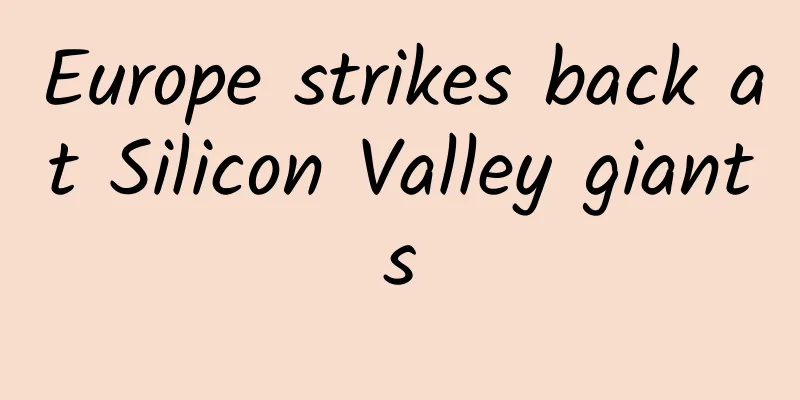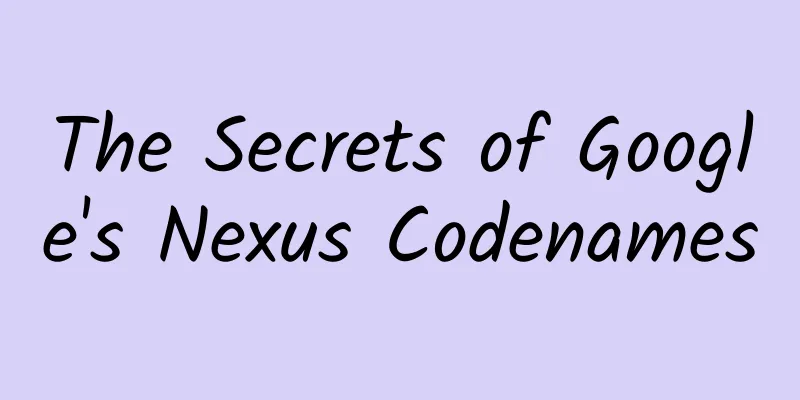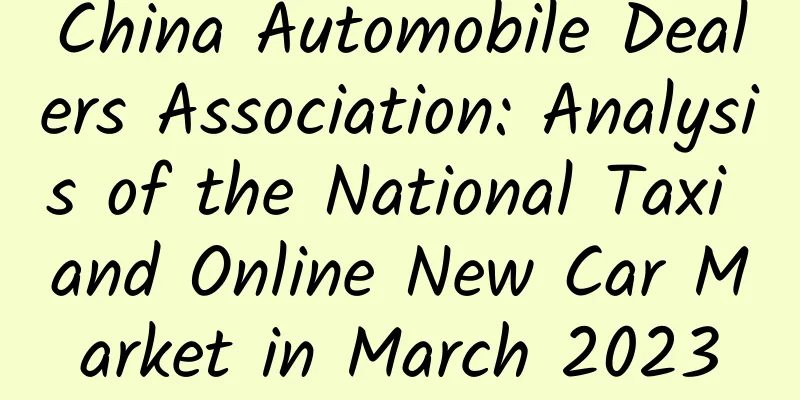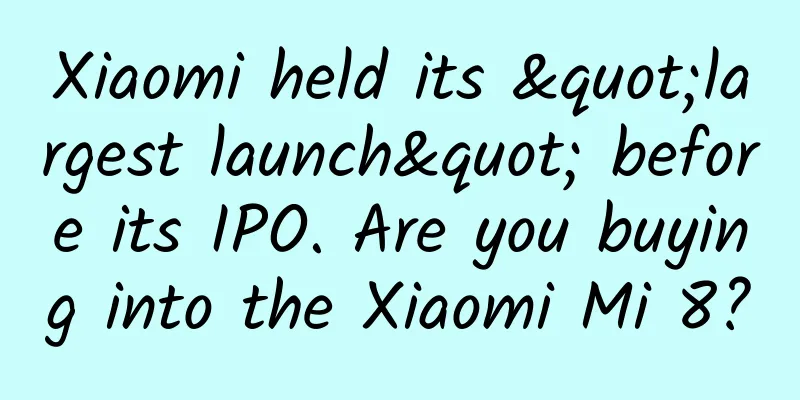Europe strikes back at Silicon Valley giants

|
The Guardian website of the United Kingdom recently published an article, pointing out that Europe is launching a large-scale war against Silicon Valley technology giants. The article said that European governments believe that Silicon Valley technology giants represented by Google, Apple, Facebook and Amazon are invading European territory, and Europe may become a colony of Silicon Valley in the digital field. Therefore, they will launch a large-scale counterattack through antitrust investigations, tax evasion investigations, and strengthening their own unified market construction. The following is the main content of the article: In the salon of the Elysee Palace in France, in the corridors of the European Parliament, and under the dome glass roof of the German Reichstag, ancient Europe is preparing for a brand new war. This war has nothing to do with religion or politics, nor with land and natural resources. The target that Paris, Brussels and Berlin want to protect is the digital environment of European residents, and their enemies are Silicon Valley companies that hope to achieve domination in this environment. Opposition to digital colonies Coal, oil and natural gas drove the industrial revolution, but in the digital age, data is replacing fuel and becoming the most valuable resource on the earth, and companies with the ability to collect and use data can from time to time transcend national borders to exercise control. Amazon, Apple, Facebook and Google represent "brutal information capitalism," in the words of German Minister of Economic Affairs and Energy Sigmar Gabriel, and Europe must protect itself immediately. "We need to defend our freedoms and modify our policies, or we will become the target of a digital hegemony in the digital sphere," Gabriel said in an impassioned appeal in the Frankfurter Allgemeine Zeitung. "This is the future of democracy in the digital age, and it is now in danger, as is the freedom, liberation, participation and self-determination of 500 million people in Europe." French Economy Minister Arnaud Montebourg believes that Europe is in danger of becoming a "digital colony of global Internet giants" and called on Google to bear part of the cost of upgrading Europe's broadband infrastructure. Gabriel said that the German antitrust office is studying whether Google can be regulated as a public sector company similar to a telecommunications service provider, after all, Google has a 91.2% share of the search market in Germany. Gabriel believes that at the very least, Google should be split up, separating its search business from mobile, YouTube or email services. He believes the first step should be to allow competitors to use Google's platform fairly. The fight against Amazon has also begun: starting last year, the online retail giant must not prevent dealers on its German website from selling goods at lower prices in other channels, including on their own websites. Conducting regulatory and anti-tax evasion investigations European regulators have also taken action. In May, the European Court of Justice supported the request of a Spaniard named Mario Costeja González to see his name hidden from Google searches across Europe. The judges ruled that individual users have a "right to be forgotten." Although the ruling caused some controversy over press freedom, it was a watershed moment, representing the first major regulatory action taken against the search and software giant in Europe. On June 11, Joaquín Almunia, the European Commission's competition commissioner, revealed that he would reopen the investigation into Google's search rankings due to the large number of complaints. On the same day, Almunia announced a large-scale investigation into tax evasion, focusing on three companies: Apple and its international headquarters in Ireland, Starbucks and its headquarters in the Netherlands, and car manufacturer Fiat. On Thursday, word came out of Brussels that Amazon, which operates from its European headquarters in Luxembourg, was also involved. "In the current context of tight public budgets, it is all the more important that large multinationals pay their taxes in accordance with the law," said Almunia. His intervention in the matter was widely interpreted as politically motivated, and it almost certainly was. Some believe that Jean-Claude Juncker, the former Luxembourg prime minister and the incoming president of the European Commission, is determined to go after Google, despite public opposition from British Prime Minister David Cameron. Google's corporate motto is "Don't be evil," but it seems to have replaced Microsoft, which has been fighting the EU on antitrust issues for years, as Brussels's biggest concern. This comparison may not be fair, after all, Google's position is not as confrontational as Microsoft's, after all, the company accepted European Commission supervision of its European business and agreed to a negotiated settlement on the search issue. However, Ian Maude, a new media expert at market research firm Enders Analysis, believes that "Google is the new Microsoft in terms of regulators' concerns. It is the big bad wolf. Privacy issues are becoming more important." "Historically, the media market has been a domestic market, but Google has crossed borders and stood on the shoulders of other Internet companies. European regulators have more power than their American counterparts, and now that Google is so big, it faces increasing regulatory scrutiny. Now, Google's primary challenge is not competition, but regulation," Maude said. The dragon sitting on the treasure Google looks friendly, but its expanding power has caused unease. The company controls the world's two largest search engines: Google itself and its video site YouTube, which can be compared with Microsoft Bing and Baidu Search. Google's web browser Chrome has also surpassed Firefox and Microsoft IE to become the most popular browser, Google Gmail is the largest email service, and phones based on the Android operating system have surpassed other mobile platforms. Now Google has entered the home field again, acquiring Nest, a cloud-based thermostat manufacturer, and Dropcam, a manufacturer of home security cameras. Google also plans to launch self-driving cars and human-like robots, and it has funded a project to blanket the world with internet connections using satellites. Mathias Dopfner, CEO of German media company Axel Springer, even compared Google to the Norse mythical dragon Fafnir. Fafnir was the son of a dwarf king, but he coveted his family's treasures, so he killed his father and took the treasure for himself. Greed turned Fafnir into a dragon that guards the treasure with fire and poison. "Google sits on a vast amount of human data, just like Fafnir in the Ring of the Nibelung," Dopfner said in an open letter to Google Chairman Eric Schmidt in April this year. He recently criticized Almunia for reaching a settlement with Google on search. Google has been accused of artificially lowering the search rankings of rival websites and raising the rankings of its own price comparison websites, stock price information queries or map services, even if these services do not have as much traffic as competitors. Almunia believes that companies that cannot get traffic because of their low rankings can pay to appear at the top of Google search pages. In response, Dopfner said in an interview with the media: "I think this is a protection of money. This is basically the business principle of the Mafia." Google searches have caused a sharp drop in advertising revenue for European newspapers, magazines and radio stations. Driven by search engines and broadband networks, piracy has caused record companies to lose a lot of revenue. Bookstores and electronics stores have disappeared from bustling urban areas because people turn to Amazon and even Apple's physical retail stores to buy these products. European mobile network service providers were once seen as pioneers in the global technology industry, but they have also had to use their wealth to subsidize Apple and Samsung phones to attract users to buy them. This unfair treatment has been further amplified by rumors of tax evasion. Amazon, Google and Apple have taken some measures to reduce the proportion of taxes they need to pay on their international market revenue to less than 10% of their profits. Concerns about the digital sphere have increased after Snowden exposed the NSA's digital surveillance. The NSA surveillance scandal has reverberated far more in continental Europe than in the UK. Gabriel argues that every time we use free music or email services, cheap smartphones, or social networking sites, we are sacrificing our national security or selling out our economic and personal freedoms. He believes that data on our preferences, actions and mistakes is collected and stored, ready to be transmitted to advertisers, medical researchers, car insurers, political strategists, and even government spies. The road paved by tablets and smartphones German Chancellor Angela Merkel abandoned her support for British Prime Minister David Cameron as he pushed for another candidate for the presidency of the European Commission. It was Döpfner who reportedly persuaded Merkel to support Juncker because he would support a war against Google. Juncker has not publicly criticized Google, but he has pledged to make building a strong European digital economy a top priority during his term. "The road to Europe's development is paved with tablets and smartphones," Juncker's campaign platform said. He used his dream of building Europe’s next digital giant as a slogan, calling for closer integration, especially the creation of a single market for telecoms and digital industries. Under the industrial policy proposed by Juncker’s team, the EU would encourage countries to harmonize laws on copyright, data protection, telecom regulation and auctions of wireless spectrum. Mobile networks were once seen as the centerpiece of a counterattack against American information capitalism, albeit impractical. With Britain’s Vodafone, Germany’s Deutsche Telekom and Spain’s Telefonica, Europe could have created multinational operators that were larger than the domestically focused American companies. But the competitive advantage quickly disappeared. In auctions of wireless spectrum, operators bid to the government for the 3G frequencies they needed to provide wireless internet services. In the process, Britain raised £22 billion, but operators were unable to expand their 3G networks. The problem worsened with the advent of 4G. Because European countries could not agree on the timing of the auctions, companies from the United States and many other countries quickly seized the opportunity. "Europe lost its telecom advantage because of our own regulation and political decisions," said Bengt Nordstrom, founder and CEO of telecom consultancy Bengt Nordstrom. "Without a unified spectrum, we are a continent of small and medium-sized countries and will never be the leader." American companies, with 310 million users, have grown significantly before expanding abroad. The same is true in China, where Alibaba and Baidu dominate e-commerce and online search, respectively. Juncker is convinced that if Europe's 500 million residents can be brought together in a unified market, then local companies such as flight companion service Skyscanner and streaming music service Spotify can further develop. British support Juncker's ideas can get support in the UK? At least the British Labour Party supports the tax and search rankings, believing that Google and its competitors should compete on an equal platform. "It's important that big internet companies pay their fair share of tax," said Helen Goodman, the Labour Party's shadow minister for culture and media. "If your competitive advantage is based on paying less tax and driving down prices, that's not a sustainable way to grow our economy." In Brussels, Cameron and Google are seen as too close. Rachel Whetstone, Google's head of communications and public policy, is a close friend of the British prime minister. Her husband, Steve Hilton, is the architect of the "Big Society" policy that helped the Conservatives regain power. Google's European headquarters is in Ireland, but it also has 2,000 programmers, sales staff and managers in London. The company is building a new headquarters in King's Cross in London that can accommodate 4,500 people. John Springford, a researcher at the British think tank Center for European Reform, said that Cameron agreed to establish a unified digital market as early as 2011, but at that time he supported the removal of trade barriers and may not be willing to accept EU laws on copyright and spectrum sales. But on tax, Cameron has made his position clear, saying tax dodgers like Starbucks need to "wake up and smell the coffee". British MP Margaret Hodge welcomed the EU's move. "This is a very good first step, and David Cameron can work with the new president of the European Commission on a mission to repair the damage and ensure that digital companies cannot evade responsibility in a region where they are making so much money. Let's hope he wakes up and smells the coffee," she said. Big Four's problems in Europe Google Google has reached a settlement with the European Commission over its search rankings, but new complaints have emerged and the investigation may be reopened. In the UK, the search and software company is under investigation for evasion. And independent record labels have complained to Brussels because Google told them that their artists might be kicked off YouTube unless they signed up for its upcoming music subscription service. Amazon Amazon has been accused of tax evasion, as well as by publishers and merchants. In Europe, Amazon is not allowed to require sellers on its German website to sell goods cheaper elsewhere. The online retail giant transfers most of its European market revenue through Luxembourg. The European Commission is considering whether to investigate it for tax evasion. Facebook With 1.2 billion users, Facebook is the world's largest social media platform, but it only accounts for 6% of global digital advertising spending, far from being a monopoly. Complaints against Facebook focus mainly on privacy. The UK and Ireland are investigating whether Facebook's research on user sentiment has crossed the line. In the US, privacy activists are concerned about Facebook's acquisition of WhatsApp, especially how Facebook will use the large number of mobile phone numbers stored by the hitherto ad-free instant messaging tool. Apple Apple has been moving non-US revenue through Ireland, especially a deal with the Irish tax authorities (said to have been negotiated under Steve Jobs) that allowed Apple to pay only 3.7% of its international profits in taxes in 2013. The deal is under investigation by the EU, and if it is found that Apple has received preferential treatment compared to other companies registered in Ireland, then some action may be taken. As a winner of Toutiao's Qingyun Plan and Baijiahao's Bai+ Plan, the 2019 Baidu Digital Author of the Year, the Baijiahao's Most Popular Author in the Technology Field, the 2019 Sogou Technology and Culture Author, and the 2021 Baijiahao Quarterly Influential Creator, he has won many awards, including the 2013 Sohu Best Industry Media Person, the 2015 China New Media Entrepreneurship Competition Beijing Third Place, the 2015 Guangmang Experience Award, the 2015 China New Media Entrepreneurship Competition Finals Third Place, and the 2018 Baidu Dynamic Annual Powerful Celebrity. |
<<: Mobile browsers: Google is about to take on Apple
>>: Watch industry executives: Smart watches are too ugly
Recommend
How to establish a user incentive system to enhance user stickiness?
Most mature apps now have a similar membership sy...
Operation and promotion: Thoughts on the 3-fold growth of App users
Scenario—Creativity—Benefit Point—Cycle—Channel, ...
Just 2 steps to permanently turn off Win10 automatic updates
It's not that Windows 10 is bad, but Microsoft...
15 Brand Social Media Marketing Methodologies!
Marketing case analysis of hot new consumer brand...
Teacher Maomao's video course on short-term compound growth of hot money and short-term premium of hot money
Introduction to the video course resources of Mr....
Pick-up master Liang Shu "Stealing Heart Chat Method Plus" Baidu Cloud Download
Resource introduction of the pick-up master Liang...
SIA: Global semiconductor sales reached US$46.2 billion in February 2024, an increase of 16.3% over the same period last year
The Semiconductor Industry Association (SIA) anno...
Electric Technology Car News: Can the Qashqai and Koleos beat the competition in the SUV market by outperforming the competition in terms of headlights?
As cars are no longer luxury goods but necessitie...
Which one has better optical image stabilization? iPhone 6 Plus vs Note 4
Optical image stabilization is now common in smar...
Analysis of 11 cases and 4 logical points of growth hacking!
The 4 key points of growth hacking: Providing hig...
Overview of Java Tools and Technologies in 2014
Introduction This article is ZeroTurnaround's...
Gastric cancer is becoming more common among young people. How can young people prevent gastric cancer? Please do these four things
In early 2021, the World Health Organization'...
How can online education improve purchase conversion rate?
If you are working in the education industry, you...









